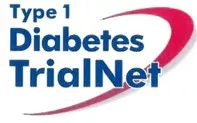“This is great news for millions of people worldwide impacted by type 1 diabetes, especially relatives of people with type 1 diabetes who are at 15 times greater risk than the general population,” said Åke Lernmark professor at Lund University and director for TrialNet Sweden.
TrialNet is the largest clinical trial network ever assembled to discover ways to delay and prevent type 1 diabetes. 28 sites participated in the study conducted by TrialNet (Sweden not included in this particular study).
“This is the first study to show any drug can delay type 1 diabetes diagnosis a median of 2 years in people at high risk,” explains Teplizumab Prevention Study Chair Kevan Herold, M.D. “As anyone with type 1 diabetes will tell you, every day you can delay this disease is important.” Dr. Herold is a Professor of Immunobiology and Internal Medicine at Yale University.
Type 1 diabetes is an autoimmune disease that occurs when the body's immune system attacks and destroys insulin-producing beta cells in the pancreas, causing abnormal blood glucose (sugar) levels. Teplizumab is an immunotherapy drug designed to interfere with the body’s immune destruction of its own beta cells.
While previous studies showed teplizumab prolonged insulin production in people recently diagnosed, this is the first study to test it in people at high risk for the disease.
Of the 76 participants in the study, 55 were under age 18, and all had a relative with type 1 diabetes. All participants had two or more type 1 diabetes autoantibodies and abnormal blood sugar levels, as identified by TrialNet screening. These individuals are thought to have a lifetime risk of clinical diagnosis nearing 100 percent.
Participants were randomly assigned to either the treatment group, which received a 14-day course of teplizumab, or the control group, which received a placebo. All participants regularly received glucose tolerance tests until the study was completed, or until they developed clinical type 1 diabetes – whichever came first.
Seventy-two percent of people in the control group developed clinical diabetes, compared to only 43 percent of the teplizumab group. The median time for people in the control group to develop clinical diabetes was just over 24 months, while the median time for the treatment group was 48 months.
Samples collected during the trial are being studied to help researchers understand why certain people responded to teplizumab better than others. Next, TrialNet researchers hope to conduct additional studies to look for ways to extend the benefits of teplizumab. We are currently conducting two other trials to see if other immune therapy can delay type 1 diabetes.
TrialNet Chair Carla Greenbaum, M.D., Director of the Diabetes Research Program at Benaroya Research Institute in Seattle, says, “In addition to being able to accurately predict who will develop T1D, we have now found a way to delay it. This is an incredible advancement that gets us one step closer to our ultimate goal: a future without T1D. Relatives of people with T1D are urged to get screened for risk at TrialNet.org.”
“We are excited to be part of this groundbreaking research and its potential to impact people at risk for type 1 diabetes,“ said professor Lernmark. “These findings highlight that type 1 diabetes is an autoimmune disease that can be delayed with immunotherapy.”
The Teplizumab Prevention Study was funded by the National Institutes of Health (NIH), primarily through the Special Diabetes Program, and NIH’s National Institute of Diabetes and Digestive and Kidney Diseases (NIDDK), with additional support from JDRF, the leading global organization funding type 1 diabetes research. MacroGenics/Provention Bio donated the study drug and provided funds for additional site monitoring.
The publication in New England Journal of Medicine:
An Anti-CD3 Antibody, Teplizumab, in Relatives at Risk for Type 1 Diabetes
About TrialNet
For more information: https://www.trialnet.lu.se



